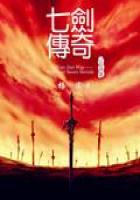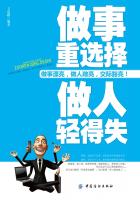IT was long since Rostov had derived such enjoyment from music as on that day. But as soon as Natasha had finished her barcarolle, the reality forced itself upon his mind again. Saying nothing, he went out, and went down stairs to his own room. A quarter of an hour later, the old prince came in, good-humoured and satisfied from his club. Nikolay heard him come in, and went in to him.
“Well, had a good time?” said Ilya Andreivitch, smiling proudly and joyfully to his son. Nikolay tried to say “Yes,” but could not; he was on the point of sobbing. The count was lighting his pipe, and did not notice his son’s condition.
“Ugh, it’s inevitable!” thought Nikolay, for the first and last time. And all at once, as though he were asking for the carriage to drive into town, he said to his father in the most casual tone, that made him feel vile to himself:
“Papa, I have come to you on a matter of business I was almost forgetting. I want some money.”
“You don’t say so?” said his father, who happened to be in particularly good spirits. “I told you that we shouldn’t be having any. Do you want a large sum?”
“Very large,” said Nikolay, flushing and smiling a stupid, careless smile, for which long after he could not forgive himself. “I have lost a little at cards, that is, a good deal, really, a great deal, forty-three thousand.”
“What! To whom? … You’re joking!” cried the count, flushing, as old people flush, an apoplectic red over his neck and the back of his head.
“I have promised to pay it to-morrow,” said Nikolay.
“Oh!” … said the count, flinging up his arms; and he dropped helplessly on the sofa.
“It can’t be helped! It happens to every one,” said his son in a free and easy tone, while in his heart he was feeling himself a low scoundrel, whose whole life could not atone for his crime. He would have liked to kiss his father’s hands, to beg his forgiveness on his knees, while carelessly, rudely even, he was telling him that it happened to every one.
Count Ilya Andreivitch dropped his eyes when he heard those words from his son, and began moving hurriedly, as though looking for something.
“Yes, yes,” he brought out, “it will be difficult, I fear, difficult to raise …happens to every one! yes, it happens to every one …” And the count cast a fleeting glance at his son’s face and walked out of the room.… Nikolay had been prepared to face resistance, but he had not expected this.
“Papa! pa … pa!” he cried after him, sobbing; “forgive me!” And clutching at his father’s hand, he pressed it to his lips and burst into tears.
While the father and son were having this interview, another, hardly less important, was taking place between the mother and daughter. Natasha, in great excitement, had run in to her mother.
“Mamma! … Mamma!… he has made me …”
“Made you what?”
“He’s made, made an offer. Mamma! Mamma!” she kept crying.
The countess could not believe her ears. Denisov had made an offer … to whom? … To this chit of a girl Natasha, who had only just given up playing with dolls, and was still having lessons.
“Natasha, enough of this silliness!” she said, hoping it was a joke.
“Silliness indeed! I am telling you the fact,” said Natasha angrily. “I have come to ask you what to do, and you talk to me of ‘silliness’ …”
The countess shrugged her shoulders.
“If it is true that Monsieur Denisov has made you an offer, then tell him he is a fool, that’s all.”
“No, he’s not a fool,” said Natasha, resentfully and seriously.















